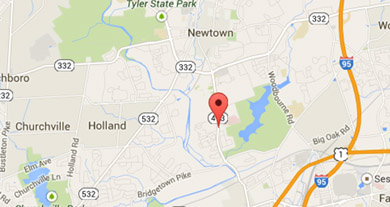To get a professional consultaton about drunk driving penalties and drunk driving consequences in Bucks County, contact experienced DUI lawyers Bucks County Philadelphia.
The illegal act of driving a vehicle while impaired by drugs and/or alcohol is referred to as DUI and/or DWI. The distinction between the two lies in the meaning of the letters used. DUI stands for driving under the influence, while DWI means driving while intoxicated. Though the two sound to be the same thing, there are actually some states that classify them as separate crimes. Take the state of Pennsylvania for example; DUI cases can be referred to as drunk driving, DUI (driving under the influence), DWI (driving while intoxicated), or DAI (driving after imbibing).
An arrest in Pennsylvania for a DUI/DAI will cause two consequences: first a court case that have a variety of potential outcomes (including jail, fines, mandatory alcohol education programs, loss of driving privileges, and more); and the removal of the person’s driver license. When a person loses their driving privileges, the Pennsylvania Department of Transportation (PennDot) has to seek to remove the individual’s driver’s privileges in a separate action form the court case.
Pennsylvania is one of the few states have laws related to the measurable amount of a substance a person has in their system. Meaning if you are arrested in the state of Pennsylvania for a DUI/DAI, and you have any measurable amount of a specified drug in your system, the state will punish the person as though they had the highest level of drugs or alcohol in their system.
.08 Pennsylvania DUI Laws, Statues, and Legislation
On September 30, 2003 Act 24 was signed into law lowered the Pennsylvania legal DUI alcohol limit from .10 to .08. The new Pennsylvania DUI law created a tiered system for punishment, enforcement, and treatment for DUI cases. The tier system includes many changes to penalties, terms of driving suspension, fines, and other penalties or requirements. The tier system is used based upon the arrestee’s Blood Alcohol Content (BAC), and any prior offenses when determining the individual’s licensing requirements and other penalties. This new law focuses on treatment for first-time DUI offenders, rather than strict punishment and suspension.
There are three levels of DUI:
General Impairment: .08 to .099% BAC
High BAC: .10 to .159% BAC
Highest BAC penalties: .16% and higher
Under the new DUI law the following people can be subject to the high BAC penalties even if their BAC is not high enough for this category: minors, commercial driver, and school vehicle or bus driver. And offenders who refuse breathe or chemical testing are likely candidates to be charged with the highest BAC category.
The following chart shows the penalties for each BAC category.
1) General Pennsylvania DUI Impairment penalties (Undetermined BAC, .08 to .099%):
No prior DUI offenses
- Ungraded misdemeanor
- Up to 6 months of probation
- $300 fine
- Alcohol highway safety classes
- Treatment if ordered
1 prior DUI
- Upgraded misdemeanor
- 12 month license suspension
- 5 days – 6 months jail time
- Fine ranging from $300-2,500
- Treatment if ordered
- 1 year ignition interlock
2 or more prior DUIs
- 2nd degree misdemeanor charge
- 12 month license suspension
- 10 days – 2 years prison time
- Fine from $500-5,000
- 1 year ignition interlock
- Treatment when ordered
The new law sets higher penalties for people who have higher BAC levels. It also allows for treatment at all levels, and requires alcohol highway safety classes for all first and second time offenders.
2) High BAC penalties (.10 to .159% BAC)
No prior DUI offenses
- Ungraded misdemeanor
- 12 month license suspension
- 48 hours to 6 months prison
- $500 to $5,000 fine
- Alcohol highway safety school
- Treatment when ordered
1 prior DUI
- Ungraded misdemeanor
- 12 month suspension
- 30 days to 6 months prison
- $750 to $5,000 fine
- Alcohol highway safety school
- Treatment when ordered
- 1 year ignition interlock
2 or more prior DUI
- 1st degree misdemeanor
- 18 month license suspension
- 90 days to 5 years prison
- $1,500 to $10,000 fine
- Treatment when ordered
- 1 year ignition interlock
3 or more prior DUI offenses
- 1st degree misdemeanor
- 18 month license suspension
- 1 to 5 years prison
- $1,500 to $10,000 fine
- Treatment when ordered
- 1 year ignition interlock
For offenders at the highest BAC levels, the new law imposes stricter penalties, and also allows for treatment. This allows the offender to be punished for choosing to continue the dangerous action of driving while under the influence of drugs and/or alcohol, and also allows and encourages treatment and counseling to help the offender with his/her drug and/or alcohol problem.
Drivers who are visibly under the influence of a controlled substance, who choose to refuse a breath or chemical test are subject to the highest BAC penalties.
Highest BAC penalties (.16% and higher) or Controlled Substance
No prior DUI offenses
- Ungraded misdemeanor
- 12 month license suspension
- 72 hours to 6 months prison
- $1,000 to $5,000 fine
- Alcohol highway safety school
- Treatment when ordered
1 prior DUI offense
- 1st degree misdemeanor
- 18 month license suspension
- 90 days to 5 years prison
- $1,500 to $10,00 fine
- Alcohol highway safety school
- Treatment when ordered
- 1 year ignition interlock
2 or more prior DUI offenses
- 1st degree misdemeanor
- 18 month license suspension
- 1 to 5 years prison
- $2,500 to $10,000
- Treatment when ordered
- 1 year ignition interlock




